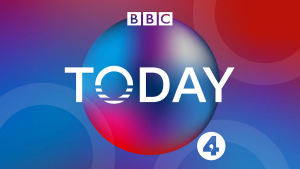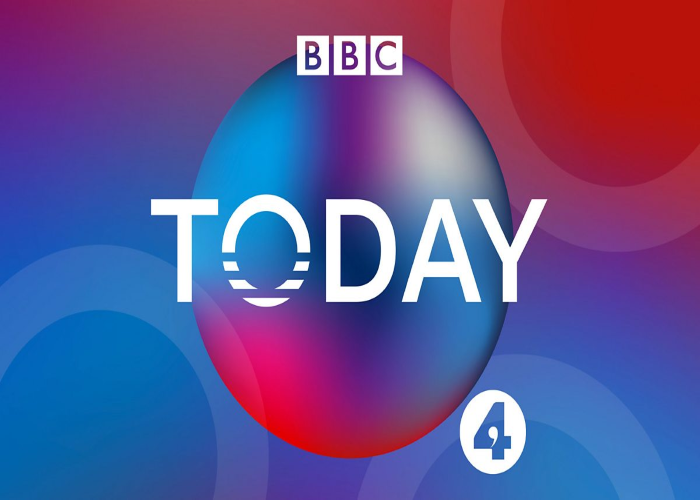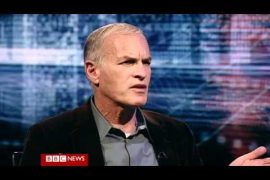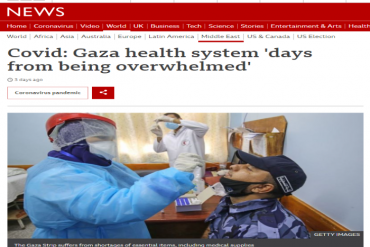The fact that BBC correspondents sometimes produce versions of the same report for different platforms (e.g. radio and television) is useful in that it provides an indication of what were considered the most important points to be communicated about a specific story.
Previously we discussed a filmed report by the BBC Jerusalem bureau’s Yolande Knell which appeared on the BBC News website on October 22nd.
BBC’S YOLANDE KNELL PRODUCES PARTIAL REPORTING FROM BEITA
Over a week later, the October 30th edition of BBC Radio 4’s ‘Today’ programme (presented by Simon Jack and Justin Webb) included a four-minute audio version of the same report (from 1:50:01 here).
As in the synopsis to the filmed version, Jack’s introduction framed the story as being about “hard-line Jewish settlers” and “locals” who once again did not apparently warrant adjectives describing their political positions. The term “locals” was also used in the report itself while the “hard-line Jewish settlers” became “extremist Jewish settlers”.
An introductory claim of 70 Palestinians killed this year did not provide any context regarding the circumstances and how many of them were involved in violent activity at the time.
[emphasis in italics in the original, emphasis in bold added]
Jack: “The number of Palestinians killed in confrontations with Israelis in the occupied West Bank this year is more than 70; the highest figure in five years. The worst hotspot for violence has been in the Palestine [sic] village of Beita. Eight people have been killed there and many hundreds injured. Locals began organising protests after hard-line Jewish settlers set up a new outpost on land claimed by Palestinian olive farmers. Our Middle East correspondent Yolande Knell reports.”
Knell began by painting a pastoral scene which included some clear signposting.
Knell: “The olive harvest is a joyful time of year for Palestinian villagers, ripe with symbolism about their connection to the land. But this year in Beita, it’s a surreal experience. There are Israeli soldiers holding guns as families teetering on ladders pluck the tiny fruits from their trees. ’We’re so happy to be back on our land’ says Amal Shemuseh [phonetic] who’s been able to come here for the first time in months. ‘It’s a wonderful feeling.’ ‘For me this land is sacred’ adds another farmer, Mohammed Habissa [phonetic]. ‘Its stones, soul, air, the trees are sacred.’ Since last year’s harvest the landscape has changed. Extremist Jewish settlers claiming biblical rights to this rocky hilltop arrived in May, moving their caravans here.”
As in her filmed report, Knell made no attempt to inform listeners that the event that triggered that ‘arrival’ in May was the murder of 19-year-old Yehuda Guetta at the nearby Tapuach Junction. While that terror attack was at the time barely mentioned by Knell and her colleagues, a report from the following month shows that the connection was already understood by BBC back in June:
“Settlers began the latest attempt to re-establish Evyatar last month, following the fatal shooting of a young Israeli man, Yehuda Guetta, at a nearby junction.”
The editorial decision to exclude any information whatsoever concerning the murders of Yehuda Guetta and Evyatar Borovsky (after whom the outpost was named in 2013) is particularly notable given Knell’s sympathetic presentation of one of those killed during the violent rioting by residents of Beita.
Knell: “And Palestinians in Beita reacted furiously. There have been rowdy protests using fireworks, burning tyres and sirens. Young locals hurl stones with slingshots as they confront the Israeli army, sometimes with deadly results. Haneh Hamayel [phonetic] shows me school reports of ther 16-year-old son Mohammed; one of those shot dead. She cries, sitting on his bed, his favourite Spiderman cover still in place. She says Mohammed saw the Palestinian nationalist struggle in the battle for the hill with its olive groves.”
Voiceover: “What did Mohammed do wrong? And all the other young people. They were still at the start of their lives and they killed them in cold blood. Then they tell us that we are terrorists.”
Knell continued with a statement that shows that she is familiar with the history of Evyatar and the fact that it was evacuated soon after its establishment in 2013. She did not clarify that “this time” an agreement was reached to evacuate the site within two months.
Knell: “In the past, when settlers started building here the army quickly moved them away. But not this time. And the outpost of Evyatar – illegal under Israeli as well as international law – presented an early test for Israel’s new coalition government. It includes parties ideologically opposed to settlements but the prime minister is a former settler leader.”
Listeners then heard a voiceover translation of an unidentified male voice speaking in Hebrew which, given the line they had just heard from Knell and the unfortunate editing, they could be forgiven for mistakenly thinking was Israel’s prime minister.
Voiceover: “We want to settle every hilltop in Israel. These hills all belong to the people of Israel.”
Knell: “Zvi Sharbaf and the other outpost founders struck a deal. They left three months ago on the condition they could return and set up a religious school in Evyatar if an official Israeli survey found state land here. Now it’s emerged that it has.”
As in her filmed report, Knell made no effort to clarify to her audience that although the Evyatar outpost was evacuated on July 2nd, the residents of Beita nevertheless chose to continue their regular rioting, along with the use of Nazi imagery and explosive devices.
Knell: “Do you think you’ll be able to go back to Evyatar?”
Voiceover Sharbaf: “Of course. We hope in one month to return. In a month the yeshiva will open and afterwards, within a few years, we will build there a community. God willing, it will be a large city. A large community of Jews.”
Listeners heard the sound of shouting before Knell concluded:
Knell: “That’s a sponge-tipped bullet and there are ribbons of tear gas streaming off the hill in front of me, which is topped with a huge Star of David. Israeli soldiers are trying to drive protesters away from the outpost. The army calls what’s happening here a riot. Among the local Palestinians news about the Israeli land survey has spread and there’s a grim mood. They say they won’t give up the fighting for this rocky hill. But the settlers aren’t giving up either.”
Webb: “Yolande Knell reporting…err…from…err…the Middle East.”
As with her filmed report, Yolande Knell did not attempt to produce a report that presents both sides of the story and gives viewers the full range of context and facts required for them to reach an informed opinion. Rather, the appearance of this one-sided audio item shows that the aim of both her reports was to steer audiences towards a partial view of the subject.





The undeniable fact is that any criticism of the activities of Jewish people singles out the followers of one particular faith and is therefore 100% racist.